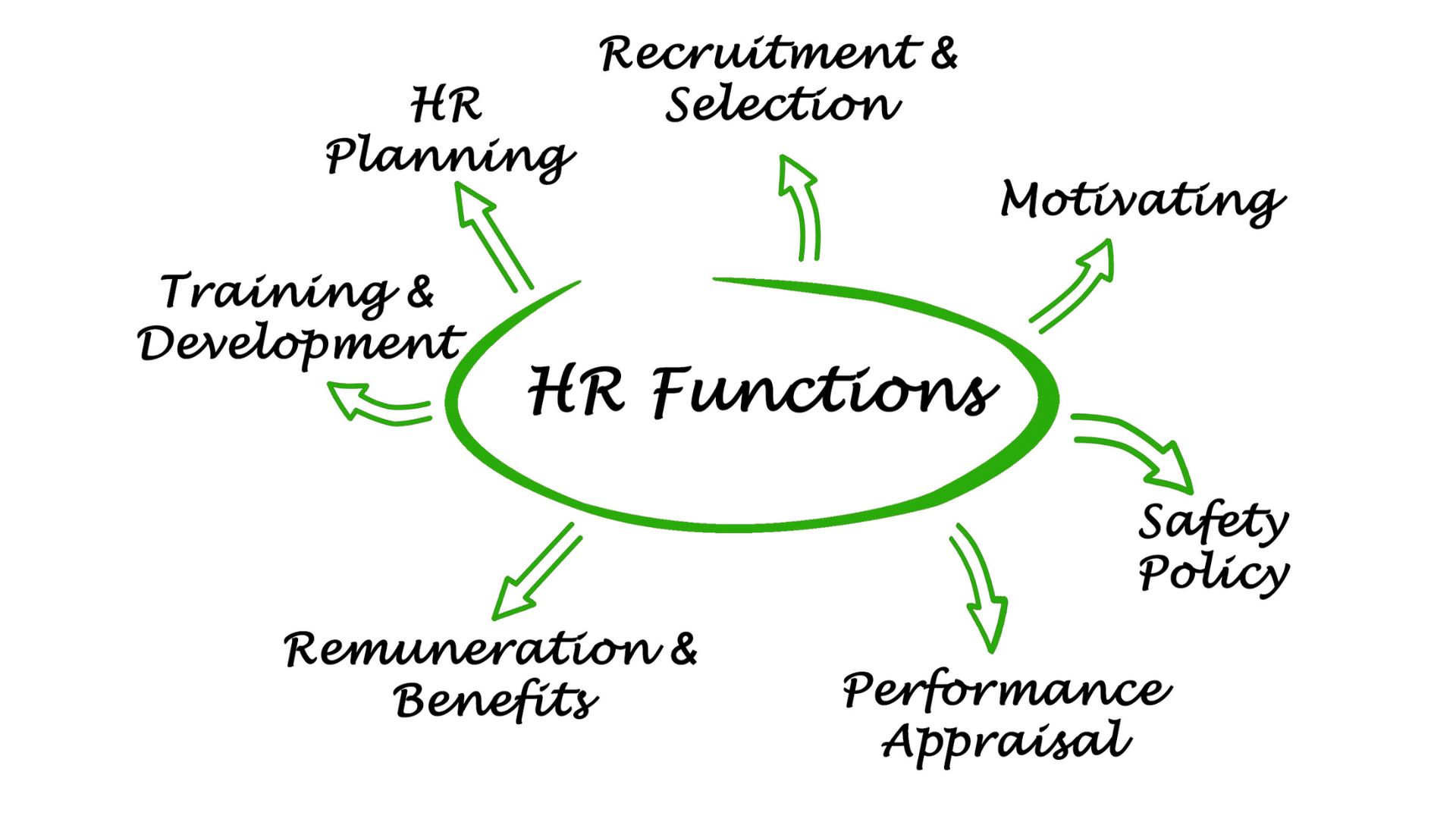Data released by EducationData.org revealed that over 3.1 million undergraduates successfully completed college in 2021. If you are an aspiring real estate agent, you may wonder how many of these graduates exited with a degree geared toward real estate.
As a real estate exam coach, I have often been asked: what do real estate agents major in? The best major for real estate agents is a real estate major. This track encompasses the skills and vital knowledge required for success in the real estate industry.
A few other degrees include business administration, finance, psychology, entrepreneurship, and digital marketing. These majors have the ingredients you need to bake into a real estate agent.
Wondering how they can help you achieve that? Below, we will explore the top ten majors for aspiring agents and how they can help you realize your career ambitions. We will round off with a dive into the real estate licensing journey.
1. Real Estate

The first major for those aspiring to become real estate agents is the most obvious degree. A degree in real estate not only answers to the demands of the industry but is also designed to furnish students with the core skills prerequisite for a life in real estate.
A real estate major often revolves around four concepts:
Real Estate Investment and Appraisal
This concept covers the methods and techniques of valuing real estate properties and the financial analysis and decision-making processes involved in real estate investment projects.
Students learn to assess risk, analyze deals, model cash flows, and structure financing for optimal returns. Appraisal methods like the cost, market, and income approaches are also examined.
Real Estate Finance and Capital Markets
The finance and capital markets concept explores the sources and structures of debt and equity financing for real estate across the capital structure. Students gain an understanding of how real estate financial markets function.
You will also walk away with insight into the dynamics between various public and private capital sources like banks, institutional investors, mortgage REITs, and more.
Real Estate Development and Urban Planning
The development and urban planning concept examines the process and challenges of developing real estate projects, from land acquisition and entitlements to design and construction.
Coursework emphasizes practical analytical tools for:
- Evaluating sites
- Crafting pro formas,
- Assessing mixed-use potential
Concepts will also integrate economic, social, and environmental factors that shape urban and regional development through planning policies.
Real Estate Law and Transactions
Real estate law and transactions cover the legal aspects and issues of real estate. You will deal with contracts, property rights, buffer zoning, and litigation.
Students examine transactional documents and gain applied skills for closing deals. Licensing, risk management, landlord-tenant disputes, and environmental regulations are also addressed.
Resultant Skills
At the end of your real estate degree, you should walk away decked with the following abilities:
- Practice real estate professionally and ethically
- Understand transactions
- Complete financial analysis
- Effective and clear communication
2. Business Administration

In second place, we have business administration. A major in business will equip you with the knowledge you need to run your real estate business effectively. Every BA program is engineered to make business leaders of its participants, apt to manage the resources.
The four core study areas for this degree are:
Business Fundamentals
Business fundamentals cover the core topics of accounting, finance, marketing, management, economics, and statistics. You will gain literacy in the language, metrics, and practices that drive organizations. It establishes rounded fluency across financial reporting, consumer behavior, operations, and forecasting.
Business Strategy
This course emphasizes the importance of strategic thinking and decision-making within a complex, rapidly evolving business landscape. Business strategy examines case studies from visionary companies and challenges students to identify opportunities, respond to disruption, use resources creatively, and craft competitive advantages.
Business Ethics
Incorporating ethical principles, corporate social responsibility, and sustainability values into the business curriculum enables students to apply these lenses when tackling real-world dilemmas. Navigating conflicts of interest, community impact, regulatory compliance, and environmental stewardship gets ingrained.
Business Communication
Sharp communication skills, both written and oral, prove critical in the workplace. Curricula hone students’ abilities to influence audiences, work effectively within teams, and bridge diverse perspectives. Cross-cultural fluency prepares students to operate in global business settings.
Resultant Skills
What will you walk away from at the end of this course pertinent to real estate?
- Systematic thinking
- Problem-solving
- Technology literacy
- Global and cultural understanding
3. Economics

Investments and economics have a long-standing relationship, a directly proportional one. And what better investment is there than real estate?
An economics class will help you understand the micro and macro sectors that impact real estate.
An economics major is “bedrocked” in four courses:
Microeconomics and Macroeconomics
Both microeconomics and macroeconomics form economics’ core foundation. Micro looks at how the decision-making of individual people and firms, theorizing how supply, demand, and competition set prices in specific markets.
Macro takes a bird’s-eye view of national economies as a whole, using models to examine:
- Growth
- Productivity
- Monetary policy
- Inflation and trade balances.
Together these fields provide mental models to explain human economic behavior from buyer-seller transaction to complex forces shaping entire countries’ GDP.
Econometrics Course
Econometrics applies statistical and mathematical models to economic data. It is used to analyze relationships between financial variables and test theories.
By using regression analysis and accounting for common data issues, econometrics draws more accurate conclusions from economic data than basic statistics. The advanced statistical techniques provide deeper quantitative insights and predictions.
Game Theory
Game theory studies decision-making when multiple parties with competing interests interact, like you would find in a real estate transaction.
It uses models to predict behavior based on different rules and assumptions. For example, whether parties cooperate or not, whether there is perfect information, and if interactions are one-time or repeated.
Game theory provides insights on negotiations, auctions, strategy, and policy by analyzing these complex multi-player “games”.
Development Economics
Development economics studies economic growth and quality of life in poor communities. Students look at the causes of poverty, inequality, and low living standards.
They examine barriers in areas like healthcare, education, food production, and financial services. Courses also cover potential solutions and policies to promote economic and human development. The goal is to understand how to improve welfare in disadvantaged communities.
Resultant Skills
The end of the economics course will help aspiring agents know how to:
- Apply economic theory
- Use quantitative methods
- Communicate effectively
- Develop critical thinking
4. Digital Marketing

Every real estate agent must possess a level of digital marketing literacy to help promote their business. Unlike most professionals, real estate agents are independent contractors.
They must handle their own marketing and find ways to make their business stand out. That is why marketing is invaluable for any real estate professional.
The four focus areas for a digital marketing degree are:
Omni-Channel Marketing
Omni-channel marketing focuses on reaching and engaging customers across multiple, integrated offline and online media platforms in a strategic and systematic manner. Coursework dives into mapping the customer journey to:
- Identify key touchpoints
- Orchestrating a unified brand experience
- Employing both traditional and digital routes and leveraging data analytics to inform channel selection and messaging.
Students learn best practices for consistent interaction with seamless transitions across websites, social media, mobile, and other channels.
Marketing Analytics
Analytics teaches students how to use data to guide marketing strategy. Students learn to gather quantitative and qualitative data on consumer behavior and campaign performance.
They analyze this information to optimize decisions around advertising, conversions, personalization, and ROI. The curriculum focuses on statistical analysis, modeling, visualization, and business intelligence software.
Social Media Strategy and Analysis
These courses teach students how to leverage social media to build brand awareness, generate leads, and foster online communities. Students learn how to set social media goals and metrics tied to their real estate business objectives.
They look at content strategies, best practices for different platforms, paid advertising options, influencer marketing, and crisis response. Tools for tracking engagement and sentiment are covered to continually refine social media approaches.
Customer-Centric Marketing
The customer-centric marketing coursework will teach students how to deeply understand real estate buyer and seller behaviors. Students learn to gather both qualitative and quantitative data on customer demographics, motivations, decision journey stages, and pain points.
The goal is to leverage these insights to improve client acquisition and retention. Strategies covered include personalized outreach, smoother home searches, responsive communications, and win-win negotiations. These are all rooted in demonstrating genuine value to the customer.
Resultant Skills
At the end of the course, you will be able to:
- Effective client communication
- Increase profitability and competitiveness
- Conduct market research and customer segmentation
- Develop and evaluate plans and campaigns
5. Finance

In fifth place we have finance. A finance major is the perfect program for those hoping to become real estate agents. Why? The programs, regardless of college or university, are poised to furnish students with knowledge on investments and financial planning and how these factor into real estate.
The core competencies covered in a finance degree include:
Asset Management
Asset management covers building investment portfolios by picking the right mix of stocks, bonds and other assets.
Students learn concepts like portfolio optimization, asset pricing, market efficiency and behavioral finance. This coursework will help agents guide their clients on which properties are a good investment.
Corporate Finance
Corporate finance examines the financial decisions you would have to make around funding operations, growth, and dividends.
Topics include:
- capital structure
- Valuation
- Governance
- Bankruptcy prevention and responding to distress
The goal is to prepare students to leverage finance to support business strategy.
International Finance
These courses explore the global financial system and cross-border capital flows. Students study foreign exchange markets, currency risk mitigation, differences in regional financial regulation and open macroeconomies.
The goal is to analyze issues unique to financing global business. After all, foreign investors spent $53,3 billion on U.S homes between April 2022 and March 2023.
Banking and Monetary Policy
The program will review the banking ecosystem including financial intermediaries’ role connecting savers, investors and borrowers. Risk management is also covered.
Courses also dissect how central bank fiscal and monetary policies impact inflation, regulation, economic growth cycles, and preventing crises.
Resultant Skills
A finance major will equip you to effectively:
- Communicate and draft presentations
- Ethically and professional practice
- Practical and empirical calculations
- Analyse financial investments
6. Accounting

Accounting is the lifeline of every business. Its adequate upkeep is vital to the function and success of your real estate business. Not to mention how sour it would be to have Uncle Sam on your tail.
Four core accounting concepts are:
Financial Accounting
Financial accounting covers preparing financial statements like income statements, balance sheets, and cash flow documents that report on a company’s financial health. Students learn accounting for revenues, assets, liabilities, and more.
Managerial Accounting
This branch of accounting focuses on internal accounting needs like budgeting, cost analysis, performance evaluation, and data-driven decision-making. Hopeful agents learn to support business strategy and operations through metrics and insights vs. external reporting.
Tax Accounting
In tax accounting, you will explore tax preparation, planning, and compliance for individuals and businesses. You will also examine complex regulations when recording financial transactions and producing filings.
Auditing
These courses dissect the auditing process for evaluating and verifying your real estate business’ financial statements. Students learn to assess risk, design audit tests, uncover fraud, and prepare audit reports to support external certification.
Learning Outcomes
The learning outcomes for this major are:
- Business fundamentals
- Critical thinking
- Ethics and professional standards
- Written and oral communication
7. Entrepreneurship

A real estate agent is an entrepreneur, which means you will need to know the makings of a business leader. An entrepreneurship degree will fit you to manage your time, skillfully disperse your resources, and increase your chances of running a successful business.
Here are the entrepreneurship concepts covered in most majors:
Launching Ventures
Entrepreneurship education will cover what it means to start a business, your real estate businesses, whether residential brokerages, commercial firms, or property management companies. Courses walk through opportunity spotting, business model creation, feasibility testing, funding models, and launch plans.
Entrepreneurial Skills
These programs build critical skills for real estate entrepreneurs, like innovating new service offerings, identifying better agent commission structures, identifying undiscovered geographic territories, and bringing more tech-enabled solutions to clients. Students practice lean startup methods for rapidly testing ideas with real estate customers.
Entrepreneurial Mindset
The entrepreneurial mindset is instilled through hands-on learning and growth experiences. You will collaborate, take risks testing new strategies, make data-driven decisions, overcome obstacles, and provide peer feedback. This fosters creative problem-solving, resilience, and leadership in a rapidly evolving real estate landscape.
Learning Outcomes
As you leave college with your degree, there are a few abilities you will walk away with:
- Build knowledge and skills for pursuing opportunities
- Inspire entrepreneurial intentions and motivations
- Cultivate the ability to create value and innovate
- Measure program quality and real-world impact
8. Psychology

Odd, right? Majoring in psychology as a hopeful real estate agent is not as odd as it sounds. From understanding the cores of communication to knowing ways to handle client relationships, psychology has a place in real estate.
In fact, a good knowledge of psychology can help you design open houses and curate listings. It will prepare you with the skills to handle negotiations.
Some core areas important for real estate are:
Cognitive Psychology
Cognitive psychology explores how the mind processes information, forms judgments, and makes decisions. These are factors critical to guiding clients’ buying and selling choices.
Social Psychology
Social psychology examines how relationships and social context influence actions, shaping your interactions with clients and in negotiations. Courses shed light on earning trust quickly, prompting referrals, mirroring body language, and disarming conflicts.
Developmental Psychology
Developmental psychology studies how thinking evolves across life stages. This is helpful for marketing and catering to buyers and sellers of different ages. Courses demonstrate the distinct motivations and needs, from first-time millennial purchasers to aging senior sellers.
Clinical Psychology
Clinical psychology delves into anxiety, depression, and compulsive behaviors. Courses equip agents to support stressed clients, showing empathy and patience while progressing deals.
Learning Outcomes
What are the skills you will walk away with at the end of the day?
- Critical thinking
- Research skills
- Ethical awareness
- Professional development
9. Urban Planning

Another good major option for real estate agents is urban planning. Urban planning is an integral part of real estate. It explores the design and development of communities.
For a real estate agent, this degree means you know what affects house value and know which areas would fit your clients according to their needs and lifestyle.
Here are some sections covered in urban planning degree programs:
Urban Design and Development
Courses explore creating vibrant, livable urban spaces balancing environmental, social, and economic needs. They are the type of fundamental knowledge needed for development sites. Students examine zoning, density, transit-orientation, affordability, preservation, and community building.
Environmental Policy and Planning
Environmental policy classes analyze environmental regulations, incentive programs, and planning policies to mitigate climate and sustainability impacts from buildings. Agents learn to navigate permits, model efficiencies, and spot rebates or tax credits for clients.
Housing and Economic Development
This coursework dives into fair housing practices, deconcentrating poverty, mixed-use/mixed-income projects, affordable housing mechanisms, and community engagement around planning. The goal is to furnish students as responsible partners in advancing equitable development.
International Development and Regional Planning
Classes compare regulations, sustainability standards, investment trends, and building practices across regions like Asia, Europe, and Latin America. Agents gain international perspectives to share with immigrant or expat clients.
Learning Outcomes
After an urban planning program, you should have:
- Critical thinking and problem-solving skills
- Communication and collaboration skills
- Creativity and innovation skills
- Professional and Ethical skills
10. Human Resources

A human resources degree can help real estate professionals know how to resolve buyer-client conflicts. It will also dress you to create a work environment you will enjoy, especially since you will be your only employee as a real estate agent.
HR concepts covered in most of this degree program include:
Human Resource Management
HR courses will provide you with the best practices for running your real estate cubicle. You will learn to define your roles and responsibilities clearly, monitor workloads, evaluate your performance, and resolve bottlenecks.
Employee Relations
Coursework examines legal and ethical dynamics between brokers, agents, and admin staff. Even though you are a contractor, you are still part of a team, and you must understand anti-discrimination and safety protocols, proper termination processes, and how to minimize workplace disputes through open communication.
Conflict Resolution
HR coursework equips real estate agents to better handle seller and buyer conflicts. Agents gain critical skills in conflict management and resolution to maintain positive relationships amidst tense situations.
By studying HR frameworks for dispute causes, negotiation tactics, personality management, and cross-cultural communication, agents are better prepared to de-escalate tensions and find agreeable middle ground. Courses also cover crisis mediation which could be used to salvage deals near the breaking point.
HR Analytics
Learn how to leverage workforce data to improve real estate performance results. Quantifying costs and reviewing factors that impact sales and client satisfaction.
Learning Outcomes
The learning outcomes of a human resources course for real estate professionals are:
- Apply HR theories to real-world cases
- Critical thinking to solve HR problems
- Effective communication with stakeholders
- Ethical, socially responsible decision-making
The Real Estate Licensing Journey
Let me tell you a little back story. A few years ago, I knew I needed a career change. I wanted something that would give me my life back. That was when this Pennsylvanian blondie became a real estate agent.
But I discovered that you don’t need a university or college education to become a real estate agent.
You can enter the industry with your high school diploma or GED certificate.
Yes, having a college degree will prove beneficial for your career. Some licensing agencies, like the California Department of Real, accept college-level courses as part of their licensing education.
The point here is you don’t need varsity-level training to become an agent. You will have to complete formal pre-licensing education. However, the training hours will differ depending on your state.
College Majors Matter Less Than Motivation
Becoming a real estate agent doesn’t necessarily require a college degree, but having one can certainly enhance your skills and knowledge in the field. My take is: if you have the willingness to learn, the hunger, and the ambition to succeed in real estate, then you may just have the skills you need to start your licensing journey.
Next Steps:
If you choose to pursue a real estate major, here are starting points:
1. Self-introspection: Determine what area of expertise would benefit you most as a real estate agent.
2. Research: Find relevant colleges that offer these courses.
3. Enroll: Choose a program that best suits your career goals.
4. Practical: Take advantage of internships or work-study opportunities to gain practical experience while studying.
5. Pre-licensing: After graduation, complete the pre-licensing education required by your state before taking the licensing exam.
To help you get test-ready, we have designed a real estate practice exam you can take for free.
Have you taken our test? Share in the comments how it went for you. We would love to hear from you if you found it helpful. Are there things you want us to improve? We’d love to hear from you too.
Please feel free to share your thoughts in the comments below.











